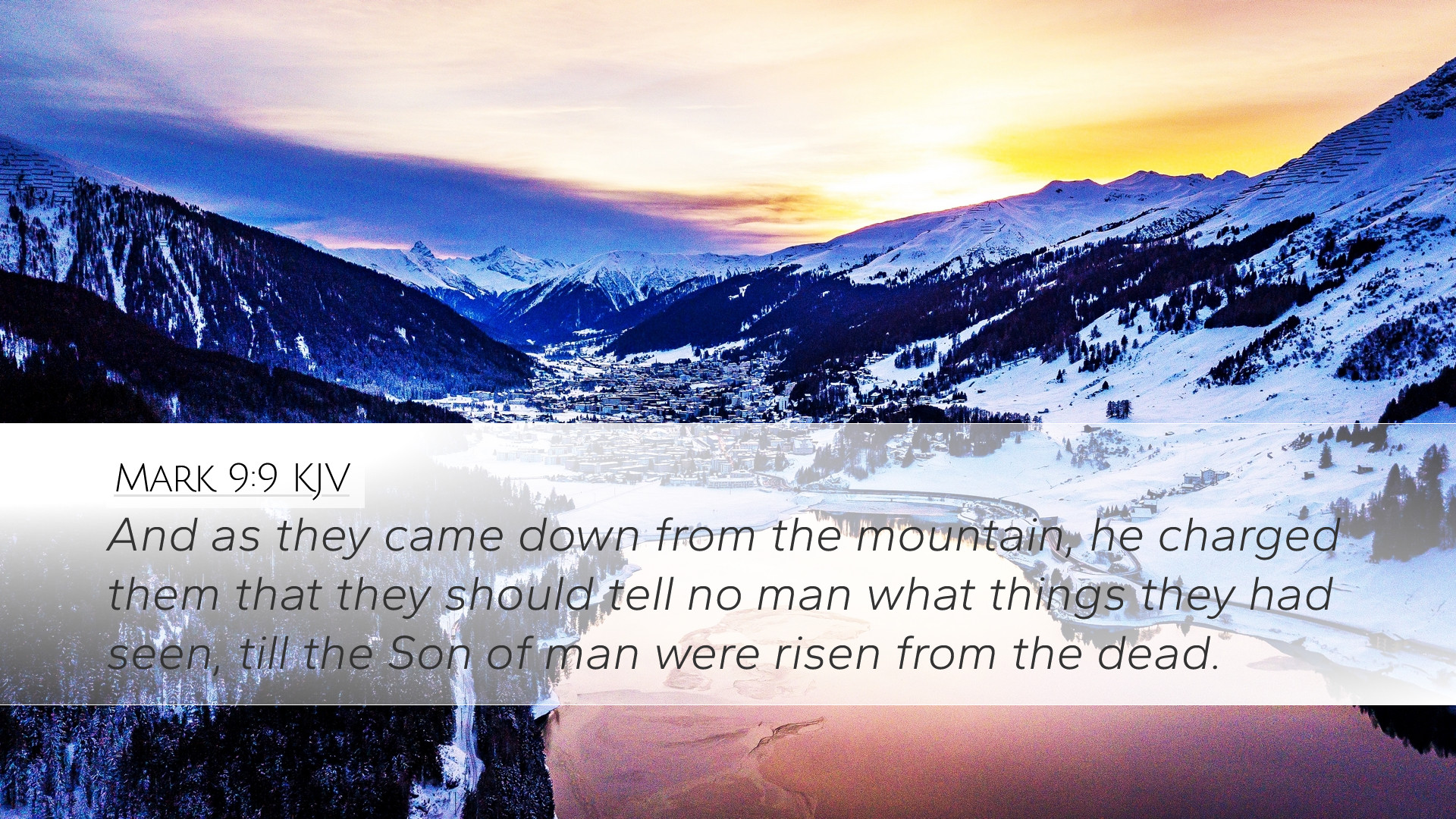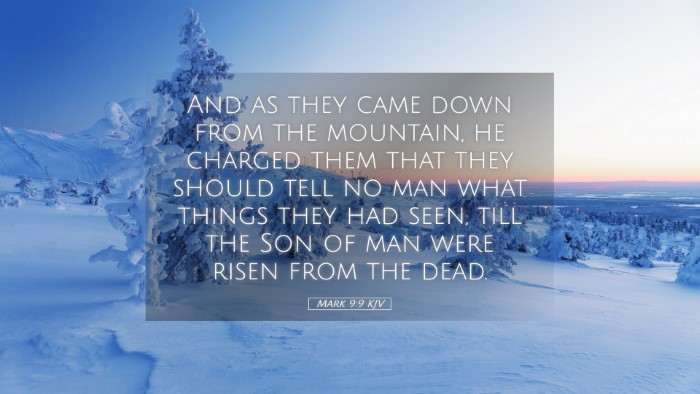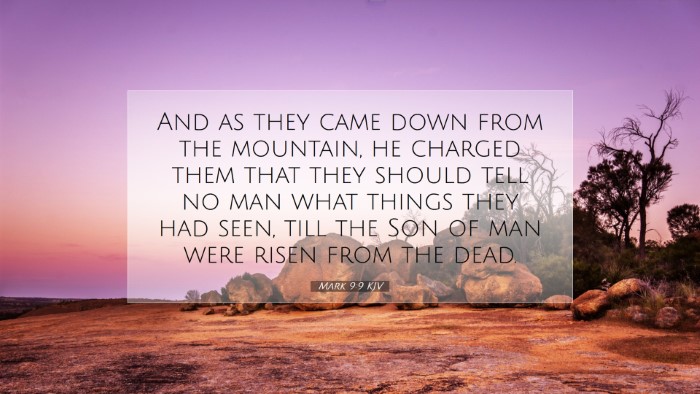Commentary on Mark 9:9
Mark 9:9 states: "As they came down from the mountain, He charged them to tell no one what they had seen, until the Son of Man had risen from the dead." This verse follows the Transfiguration of Jesus where He revealed His divine glory to Peter, James, and John. The command of silence following such a momentous event raises significant theological discussion.
Introduction
This command not only encapsulates the mystery of Christ's identity but also sets a tense and dramatic tone relative to the ministry of Jesus. Public Domain Commentators provide rich insights into this verse, which we shall explore.
Exposition of the Verse
The Context
In Mark 9:2-8, the Transfiguration reveals Jesus’ true nature as the Son of God. Peter’s response to build tents indicates a desire to preserve this heavenly experience. However, God Himself intervenes, declaring, "This is my beloved Son; listen to Him" (Mark 9:7). Thus, the subsequent charge to silence in Mark 9:9 is rooted in the necessity of understanding Jesus' identity correctly within the context of His ministry.
The Charge of Silence
Matthew Henry notes that the command to tell no one reflects the need for a proper understanding of Christ’s mission. The disciples were not to speak until the completion of Jesus’ work, specifically His resurrection. This restraint emphasizes the importance of revelation being contextually appropriate and divine in timing. It implies that human understanding of Jesus’ glory must integrate the reality of His suffering and sacrifice ahead.
The Importance of the Resurrection
Albert Barnes remarks that the resurrection is the key to fully appreciating the significance of the transfiguration. Without acknowledging the death and resurrection of Jesus, the awe inspired by His glory could lead to misunderstandings about His earthly ministry and divinity.
Theological Implications
Christological Significance
This verse affirms the need for a salvific understanding of Jesus' divinity because recognizing Christ entails recognizing His suffering (Mark 8:31). Adam Clarke emphasizes that any glorification of Christ which neglects the cross is incomplete and, therefore, misleading. Mark 9:9 invites theologians to delve deeper into the interplay between glory and suffering in Christ’s purpose.
The Role of Discipleship
The directive to remain silent signifies a crucial moment in discipleship. According to Matthew Henry, the glory seen must be processed and understood through the lens of Jesus’ entire mission, which includes the cross. Those in ministry (pastors and theologians) must grapple with how to teach and bear witness to the fullness of Jesus, ensuring that discipleship embodies an understanding of both His majesty and His humility.
Theological Silence and Proclamation
The command for silence can be seen as counterintuitive, given the Great Commission's mandate to preach the Gospel. However, this timing reflects preparatory discipleship. Adam Clarke emphasizes the necessity of spiritual maturity in proclamation; silence may serve a purpose until the disciples are fully equipped to declare the mystery of Christ and the hope of resurrection comprehensively.
Practical Application
Preparation for Ministry
This verse conveys that preparation is vital before engaging in ministry. Pastors and ministry leaders should reflect on whether they have sought to deeply understand the complexities of Christ’s nature and mission before proclaiming His message. Continual theological education and introspection are necessary for effective witness.
Understanding Suffering as Part of Glory
Mark 9:9 invites believers to reflect on the relationship between suffering and glorification. In a contemporary context, students and theologians are encouraged to embrace this duality rather than shy away from the narrative of suffering in their faith journey. Both Henry and Clarke assert that glory cannot be separated from the cross; to understand glory, one must acknowledge and embrace personal and communal suffering.
Conclusion
Mark 9:9 serves as a profound reminder of the complexities in understanding Jesus—the paradox of glory intertwined with suffering. The insights provided by Matthew Henry, Albert Barnes, and Adam Clarke urge us to approach this text with reverence and depth, fostering a more holistic understanding of who Christ is in our lives and ministries. As pastors, students, and theologians, let us engage with both the silence required until the right moment and the ultimate proclamation of the resurrection that defines our faith.


